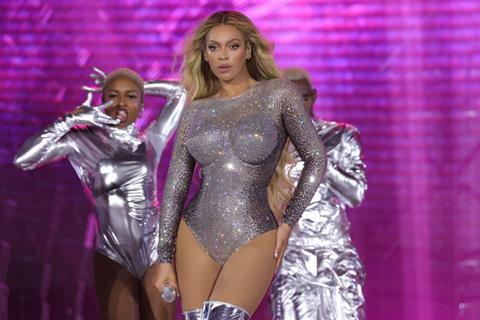Beyoncé is known for using music to process injustices against her, and Alex Noel suggests that her new album shows how we can take the injustices we’ve experienced and make something extraordinary out of them.

With the release of her chart-topping album, ‘Cowboy Carter’ in March, Beyoncé proves herself to be an artist for whom nothing is out of reach, or beyond her talents.
Though touted as a country album, ‘Cowboy Carter’ is so much more. A fact that Beyoncé asserted in an instagram post, as only she could, saying; “This ain’t a Country album. This is a ‘Beyoncé’ album”. That means; forget everything you think you know about country music and ‘hold onto your hat’.
’Act II: Cowboy Carter’ (to give it its full title) is Beyoncé’s 8th studio album and the second to be released of an anticipated trio. As with her 2022 dance album, ‘Act I: Renaissance’, she continues to explore genres well outside of the R&B she became known for, and challenges any perceived limitations of her as an artist by refusing to ‘stay in her lane’. This fits within an ever-growing body of work which demonstrates continued adaptability, relevance, and the savvy to challenge accepted norms within the music industry, and wider society.
The album goes broad and deep; well beyond what is recognised as ‘country music’. But it is a ‘Beyoncé’ album after all.
The album goes broad and deep; well beyond what is recognised as ‘country music’. But it is a ‘Beyoncé album’ after all. It delves into the very roots and history of country music, and ultimately reimagines what it is and can be from her perspective. It includes an eclectic set of covers and collaborations, welcoming artists both established and new, all broadcast from a fictional country radio station called ‘KNTRY Radio Texas’.
It also manages to meld the most disparate of genres throughout its 27 tracks, all united under Beyoncé’s indomitable persona, unshakeable confidence and the clearest of musical visions. On it she covers the Beatles ‘Blackbird’ and Dolly Parton’s ‘Jolene’. And adds a diversity of other musical strands, including trap, psychedelic funk, rock and roll, blues, hip hop, soul, rock, opera, and folk music. She also weaves in other references, including samples of the Beach Boys, Nancy Sinatra, and Fleetwood Mac.
The album addresses the nepotism, sexism and racism felt within the ‘closed shop’ of the country music scene.
The album addresses the nepotism, sexism and racism felt within the ‘closed shop’ of the country music scene. As a review in the Guardian put it; “it’s an album that takes country music by its plaid shirt collar, holds up its (mainly) male, pale and stale status to the light and sets it on fire.” Here, Beyoncé found herself to be an outsider, despite having solid country credentials, not least in hailing from Houston, Texas.
She was especially unwelcome, as speculated, at the Country Music Awards in 2016. After performing her country song ‘Daddy Lessons’ on stage with ‘The Chicks’ she received heavy criticism from country fans who saw her as an interloper. The overriding message was: ‘you don’t belong here’. However, it would be this experience that galvanised her to become an artist who is now able to traverse genres at whim and even remake them altogether.
Beyoncé is known for using music to process injustices against her. A case in point is her album, ‘Lemonade’, which confronted husband Jay-Z’s infidelity. Whether this should have been done in such a public fashion is a moot point when it produced such an iconic album. However, more recent projects have been less about her own pain and more about highlighting issues to give others a platform and voice. Cowboy Carter does just this; it features numerous black country artists, who have also found themselves to be outsiders in a music scene that they have an equal claim to.
Read more album reviews
The rise of Raye - the singer and her Christian faith
Ellie Goulding’s latest music has such clear biblical themes - has she become a Christian?
Beyoncé’s approach; showcasing new artists and redefining musical genres could be described as an astute business strategy. It opens up markets for her music and enables her to have a slice of the cake, by adding her icing on top. That may sound cynical, but it’s plausible for an artist with her commercial success.
However, if anything it shows how we can take the injustices we’ve experienced and make something extraordinary out of them. Beyoncé has done just that, and I take my hat off to her.
By using our voices to speak up for ourselves, and by giving others a platform along with the opportunity to be seen and heard; we partner with God to ‘let justice roll on like a river, righteousness like a never-failing stream!’ [Amos 5]. Wherever we can, we can be the ones to change the script - offering spaces which embrace outsiders, create belonging and enable everyone to succeed.




































No comments yet